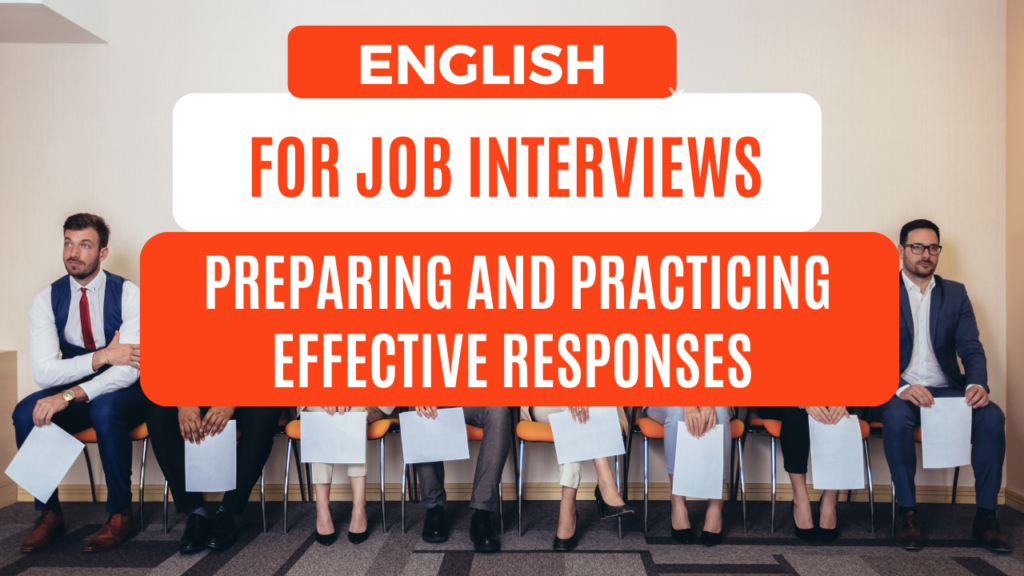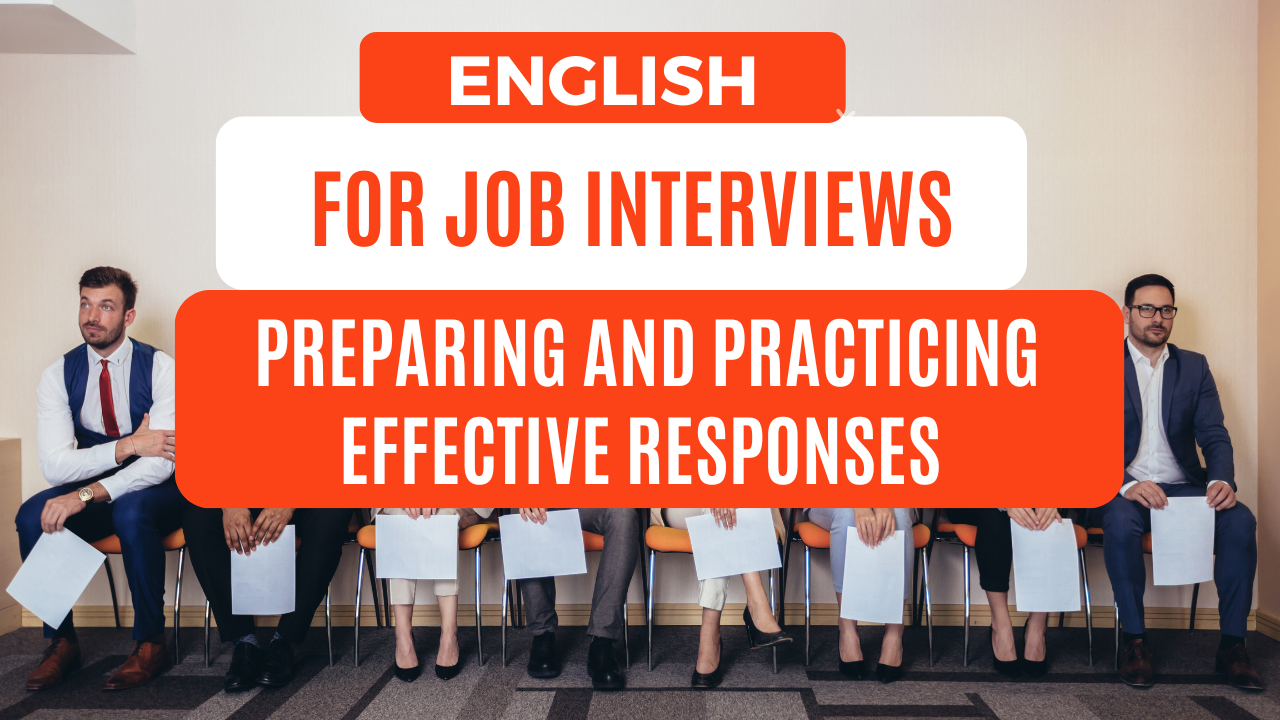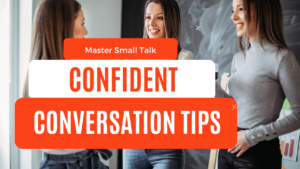Nail Your Job Interview in English: Strategies for Strong, Clear Answers

Introduction to English For Job Interviews
In the modern global job market, mastering English for interviews is essential, especially for non-native speakers. Many organizations favor English for internal communication and during the hiring process. As businesses grow internationally, strong English communication at job interviews is increasingly valued.
The competitive nature of the job market heightens the importance of English proficiency. Employers seek candidates who can seamlessly join diverse teams and communicate across cultures. Preparing for job interviews involves more than just answering questions; it demonstrates a variety of professional skills.
One objective of mastering English for interviews is to showcase language proficiency. This includes comprehending questions, articulating thoughts clearly, and participating in meaningful discussions. Fluent English indicates readiness for international work and the ability to contribute to company goals.
Job interviews in English also emphasize vital soft skills like critical thinking, problem-solving, and interpersonal communication. Employers assess how candidates handle unexpected questions, manage stress, and interact with interviewers. Proficiency in English allows candidates to present these skills effectively, boosting their overall appeal.
Clearly communicating qualifications and experience is crucial in job interviews in English. Detailed explanations of past roles, achievements, and career aspirations can greatly influence the interviewer’s impression. Simplifying complex ideas not only showcases language skills but also demonstrates a thorough understanding of the subject.
This blog post offers tips and sample responses to help you excel in your next job interview in English.
Preparing for Common Interview Questions
Understand the Job Description
Before you go to the interview, make sure you understand the job description well. In job interviews in English, certain questions are frequently asked to gauge a candidate’s fit for the role and organization. Preparing for these common interview questions is essential for demonstrating confidence and competence. Knowing what the employer is looking for will help you tailor your responses.
Tip: Highlight key skills and requirements mentioned in the job description.
Example: If the job requires strong communication skills, you could say, “In my previous job, I effectively communicated with team members and clients to complete projects on time.”
Research the Company
Knowing about the company shows that you are interested and prepared. Research the company’s mission, values, and recent news. By researching the company and understanding the specific job requirements, candidates can align their experiences and skills with what the interviewer is looking for.
Tip: Mention specific information about the company during the interview to show your knowledge.
Example: “I admire your company’s commitment to sustainability and innovative solutions. I am excited about the opportunity to contribute to these initiatives.”
Sample Responses for common interview questions

To feel more at ease during the actual interview, practice responding to common interview questions. To illustrate effective and professional responses, consider the following sample answers to common interview questions:
Q1. Tell me about yourself.
Tip: A well-structured response includes a brief introduction, a summary of key professional experiences, and a statement about your current goals, ensuring it aligns with the job you are applying for.
Sample Response: Certainly. I have a background in marketing, with over five years of experience in digital strategy and content creation. I hold a degree in Business Administration and have worked with various companies to enhance their online presence. My strengths include analytical thinking, creativity, and strong communication skills, which I believe make me a valuable asset to your team.
Q2. Why do you want to work for our company?
Tip: Explain what attracted you to the company and how your goals align with theirs.
Sample Response: I am impressed by your company’s commitment to innovation and sustainability. Your recent projects in renewable energy align with my professional values and interests. I am eager to contribute to a forward-thinking organization and believe my skills in project management and teamwork would be beneficial in achieving your goals.
Q3. What are your strengths?
Tip: Mention a few strengths that are relevant to the job and provide examples.
Sample Response: I am a strong problem-solver and team player. In my last job, I helped streamline a process that reduced costs by 15%.
Q4. What are your weaknesses?
Tip: choose an area where you have made improvements or are actively working to develop. This shows self-awareness and a commitment to personal and professional growth.
Sample Response: I sometimes focus too much on details, but I have been working on managing my time better to ensure I meet deadlines.
Practicing Effective Responses
Engaging in various practice methods
An important part of the job search is preparing for interviews, and rehearsing your answers is key to success. Using different practice techniques can greatly boost your confidence and professionalism. A highly effective method is to take part in mock interviews. These practice sessions, which can be done with friends, mentors, or career coaches, offer a realistic setting to refine your responses. Mock interviews are useful for pinpointing areas for improvement and becoming familiar with frequently asked questions.
Recording and Reviewing

Another useful technique is recording and reviewing your answers. By recording yourself, you can objectively assess your performance, paying attention to factors like clarity, tone, and body language. This practice helps you identify areas for improvement and fine-tune your responses. Additionally, getting feedback from friends or mentors can provide constructive criticism and suggestions, ensuring your answers are polished and professional.
Practice Different Aspects of Effective Communication
Effective communication involves more than just words. Body language, tone, and clear articulation are crucial for making a positive impression during an interview. Maintaining good posture, making eye contact, and using appropriate gestures can convey confidence and professionalism. A calm and steady tone of voice, along with clear enunciation, ensures that your responses are easily understood. Practicing these elements alongside your verbal answers is essential for a well-rounded interview performance.
Tips for Success
Practice Speaking Clearly and Confidently
Speak clearly and at a moderate pace. Confidence is vital in interviews, so practice your responses until you feel comfortable.
Tip: Record yourself answering questions to evaluate your clarity and confidence.
Ask Questions
Prepare a few questions to ask the interviewer. This shows your interest in the role and helps you learn more about the company.
Sample Questions:
- “Can you tell me more about the team I would be working with?”
- “What are the opportunities for growth within the company?”
Stay Calm
Managing anxiety is essential. One helpful technique is controlled breathing, which can calm nerves and enhance focus. Additionally, thorough preparation, including practicing common interview questions, can increase confidence and lessen anxiety.
Listen Actively for Better Responses
Active listening is also crucial. It means fully focusing on the interviewer, understanding their questions, and responding thoughtfully. This not only ensures relevant answers but also shows attentiveness and respect. Furthermore, job seekers should prepare insightful questions to ask. Inquiring about company culture, team dynamics, or specific job responsibilities reflects genuine interest and engagement.
Be Ready for Unexpected Questions
Unexpected questions can be challenging, but they offer a chance to showcase adaptability and problem-solving skills. When faced with such questions, take a moment to think before answering. Using the STAR (Situation, Task, Action, Result) method to structure responses can be very effective. This approach ensures answers are clear, concise, and highlight relevant skills and experiences.
Use the STAR Method
The STAR method (Situation, Task, Action, Result) is a great way to structure your responses to behavioral questions.
Example Question: “Can you give an example of a time you faced a challenge at work?”
Sample Response:
- Situation: “In my previous job, we had a major project with a tight deadline.”
- Task: “I was responsible for coordinating the team’s efforts.”
- Action: “I organized daily check-ins and created a shared document for tracking progress.”
- Result: “We completed the project on time and received positive feedback from the client.”

Follow Up After the job interview
Following up after the job interview is a crucial step that many candidates overlook. Sending a thank-you email within 24 hours expresses your appreciation and reiterate your interest in the position. This message should be concise, express gratitude, and highlight key points discussed during the interview.
Sample Email: “Dear [Interviewer’s Name], Thank you for the opportunity to interview for the [Job Title] position. I enjoyed learning more about your team and company. I am excited about the possibility of contributing to your company and goals. Please feel free to contact me if you need any additional information. Best regards, [Your Name]”
Thoroughly Prepare for Virtual Interviews

Virtual interviews are now more common. Best practices include ensuring a quiet, well-lit space, testing your technology in advance, and dressing professionally. It’s important to make eye contact by looking at the camera rather than the screen to establish a stronger connection with the interviewer.
Frequently Asked Questions (FAQs)
1. Why is English important for a job interview?
Using fluent job interview English shows that you can communicate effectively and handle professional situations with confidence. Many companies, especially global ones, assess your English speaking skills during the job interview to ensure you can collaborate and present ideas clearly.
2. How should I start my job interview introduction in English?
A strong job interview introduction should briefly include your name, educational background, and relevant experience. For example:
“Good morning, my name is Riya Sharma. I recently graduated in Marketing, and I’ve completed an internship where I worked on social media campaigns.”
If you’re a beginner, watch examples of job interview self introductions or practice your job interview introduction for fresher online.
3. What are the most common job interview questions and answers in English?
Some common interview practice questions include:
- “Tell me about yourself.”
- “Why should we hire you?”
- “What are your strengths and weaknesses?”
Preparing short, clear responses in advance helps. You can find examples of job interview in English with answers online to understand the right tone and structure.
4. How can I prepare for a job interview in English if I’m not confident?
Start with job interview preparation by learning key vocabulary and expressions used in professional conversations. Then, record yourself answering job interview practice questions to evaluate your fluency and pronunciation. Gradual exposure helps you build both skill and confidence.
5. What is the best way to practice job interviews in English?
You can do job interview practice online using mock interviews or apps that simulate real-life situations. Watching job interview practice videos is also a great way to observe body language, tone, and natural phrasing. Combine listening and speaking exercises for maximum improvement.
6. How can I improve my vocabulary for a job interview in English?
Focus on job interview in English vocabulary that’s specific to your profession—like teamwork, leadership, project management, or innovation. Keep a notebook of words and phrases, and use them in your mock answers to make your responses sound more professional.
7. Are there any courses to help with job interview preparation in English?
Yes, you can enroll in a job interview preparation course that teaches communication strategies, body language, and effective speaking skills. Such courses often include job interview practice sessions and feedback to help you refine your answers.
8. How can I make my self-introduction stand out during the interview?
A great job interview self introduction is not just about your background—it’s about showing enthusiasm and purpose. Use confident language, maintain eye contact, and highlight what makes you unique. Avoid memorized speeches; sound natural and genuine.
9. What are some useful job interview tips for beginners?
Some essential job interview tips include:
- Research the company and role thoroughly.
- Practice your answers aloud.
- Dress appropriately and be on time.
- Listen carefully before answering.
Following these simple steps will help you stay calm and make a strong impression.
10. How often should I practice before a real job interview?
It’s best to do job interview practice daily for at least a week before your interview. Practice answering different job interview practice questions and simulate real conditions by recording or timing your responses. The more you rehearse, the more natural your English will sound.
Conclusion
Thorough preparation and practice can significantly improve your performance in job interviews. Understanding the job description, researching the company, and practicing common interview questions can boost your confidence and readiness. Use the STAR method to structure your answers and remember to ask thoughtful questions. With these tips and sample responses, you’ll be well-prepared to excel in your next English-language job interview. Good luck!
Ready to ace your next job interview in English? Start practicing with our tips and sample responses today! Follow our blog for more expert advice and resources to help you succeed in your job search. Don’t forget to share your experiences and questions in the comments section below—we’re here to help you every step of the way!
Want to dive deeper into- how to crack a job interview?
I create content to make English learning simple and practical. If you find it helpful, consider supporting me Your contribution helps me improve my skills and bring better content for you.




I’m extremely impressed along with your writing skills as smartly as with the structure to your blog. Is that this a paid theme or did you modify it your self? Either way keep up the nice quality writing, it’s uncommon to look a nice weblog like this one these days. !
Thanks! Your feedback is quite valuable for me. Yes, I have modified the theme :). Keep coming back for more!
At this time it sounds like Expression Engine is the best blogging platform available right now. (from what I’ve read) Is that what you are using on your blog?
No, I’m not but thank you for appreciating my work.:) Keep coming back for more such helpful content!
Attractive section of content. I just stumbled upon your website and in accession capital to assert that I acquire actually enjoyed account your blog posts. Anyway I’ll be subscribing to your feeds and even I achievement you access consistently rapidly.
Thank you for your lovely comment!:)
Greetings from Florida! I’m bored at work so I decided to browse your website on my iphone during lunch break. I really like the knowledge you provide here and can’t wait to take a look when I get home. I’m shocked at how fast your blog loaded on my mobile .. I’m not even using WIFI, just 3G .. Anyways, superb site!
Thank you for your feedback! It helps a lot in understanding my site performance.:)
I found your blog website on google and examine just a few of your early posts. Proceed to maintain up the excellent operate. I just additional up your RSS feed to my MSN News Reader. Seeking ahead to reading more from you afterward!…
Thanks a lot! Will bring more such useful content in the future as well.
Hi! I know this is kind of off topic but I was wondering which blog platform are you using for this website? I’m getting sick and tired of WordPress because I’ve had issues with hackers and I’m looking at options for another platform. I would be great if you could point me in the direction of a good platform.
I’m using WordPress on Hostinger. You can buy hosting using my affiliate link and get 20% off . Use the link https://hostinger.in?REFERRALCODE=W2FSONIKL7B6
There is apparently a bundle to identify about this. I assume you made various nice points in features also.
Glad that you got some help from my posts!
you have a great blog here! would you like to make some invite posts on my blog?
Thank you! Sure, I don’t mind sharing knowledge. 🙂
I truly enjoy reading on this internet site, it contains excellent blog posts.
Thanks for your feedback! Means a lot.
It’s a pity you don’t have a donate button! I’d without a doubt donate to this brilliant blog! I guess for now i’ll settle for bookmarking and adding your RSS feed to my Google account. I look forward to fresh updates and will share this site with my Facebook group. Talk soon!
Thank you! Means a lot.
Hello.This post was extremely interesting, especially because I was searching for thoughts on this issue last week.
Glad that my post was useful for you! Subscribe for more.
Some genuinely nice stuff on this internet site, I love it.
Thank you! Happy to help.
Hi there! This post couldn’t be written any better! Reading through this post reminds me of my previous room mate! He always kept talking about this. I will forward this article to him. Pretty sure he will have a good read. Thank you for sharing!
Thanks!
Thanks for the marvelous posting! I seriously enjoyed
reading it, you might be a great author.I will always bookmark your
blog and may come back sometime soon. I want to
encourage yourself to continue your great work, have a nice morning!